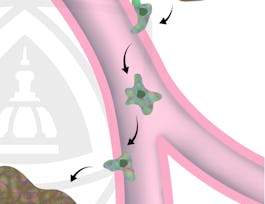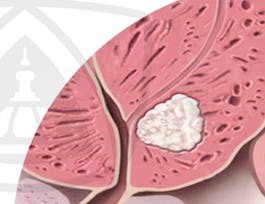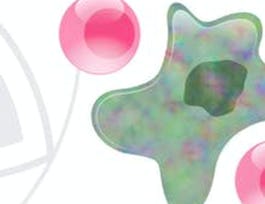Over 500,000 people in the United States and over 8 million people worldwide are dying every year from cancer. As people live longer, the incidence of cancer is rising worldwide and the disease is expected to strike over 20 million people annually by 2030. This open course is designed for people who would like to develop an understanding of cancer and how it is prevented, diagnosed, and treated.


Introduction to the Biology of Cancer
This course is part of Cancer Biology Specialization
Taught in English
Some content may not be translated

Instructor: Kenneth J. Pienta, M.D.
203,204 already enrolled
Included with 
Course
(7,355 reviews)
97%
Skills you'll gain
Details to know

Add to your LinkedIn profile
7 quizzes
Course
(7,355 reviews)
97%
See how employees at top companies are mastering in-demand skills

Build your subject-matter expertise
- Learn new concepts from industry experts
- Gain a foundational understanding of a subject or tool
- Develop job-relevant skills with hands-on projects
- Earn a shareable career certificate


Earn a career certificate
Add this credential to your LinkedIn profile, resume, or CV
Share it on social media and in your performance review

There are 6 modules in this course
In this first week, we'll get a high-level introduction to the basics of cancer biology as well as incidence and common types of cancer.
What's included
5 videos4 readings1 quiz
Now, we'll turn our attention to the genetics of cancer, variation and mutation, two-hit hypothesis, and genomic instability.
What's included
4 videos1 quiz
All cancers share ten cellular hallmarks. This week, you'll learn to identify these hallmarks in order to distinguish a normal cell from a cancerous cell.
What's included
4 videos1 quiz
The lethal agent of cancer is metastasis. This week, we'll take a good look at this deadly event, TNM staging, the metastatic process, and an ecological paradigm.
What's included
5 videos1 quiz
This week, we'll examine imaging as a tool for diagnosis, staging, and treatment of cancer.
What's included
5 videos1 quiz
In this final week, we'll examine the variety of treatment options available to doctors and patients as well as the features of clinical trials and how they are used to improve the treatment arsenal.
What's included
9 videos1 reading2 quizzes
Instructor

Offered by
Recommended if you're interested in Basic Science

Johns Hopkins University

Johns Hopkins University

Johns Hopkins University

Yale University
Why people choose Coursera for their career




Learner reviews
Showing 3 of 7355
7,355 reviews
- 5 stars
84.81%
- 4 stars
13.10%
- 3 stars
1.64%
- 2 stars
0.21%
- 1 star
0.21%
New to Basic Science? Start here.

Open new doors with Coursera Plus
Unlimited access to 7,000+ world-class courses, hands-on projects, and job-ready certificate programs - all included in your subscription
Advance your career with an online degree
Earn a degree from world-class universities - 100% online
Join over 3,400 global companies that choose Coursera for Business
Upskill your employees to excel in the digital economy
Frequently asked questions
Access to lectures and assignments depends on your type of enrollment. If you take a course in audit mode, you will be able to see most course materials for free. To access graded assignments and to earn a Certificate, you will need to purchase the Certificate experience, during or after your audit. If you don't see the audit option:
The course may not offer an audit option. You can try a Free Trial instead, or apply for Financial Aid.
The course may offer 'Full Course, No Certificate' instead. This option lets you see all course materials, submit required assessments, and get a final grade. This also means that you will not be able to purchase a Certificate experience.
When you enroll in the course, you get access to all of the courses in the Specialization, and you earn a certificate when you complete the work. Your electronic Certificate will be added to your Accomplishments page - from there, you can print your Certificate or add it to your LinkedIn profile. If you only want to read and view the course content, you can audit the course for free.
If you subscribed, you get a 7-day free trial during which you can cancel at no penalty. After that, we don’t give refunds, but you can cancel your subscription at any time. See our full refund policy.

